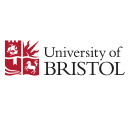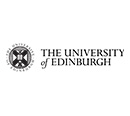
Ecosystem
Our Network
Connect with the leaders, innovators, and experts driving the future of synthetic biology
We partner with many of the leading synthetic biology companies and organisations from academia, industry, and government from across the globe.
We support innovation and provide our partners with access to a broad array of resources designed to help translate university-based research and pre-seed concepts into commercial products, tools, processes and products.
 Industrial Partner
Arborea
London, United Kingdom
Continue reading
Industrial Partner
Arborea
London, United Kingdom
Continue reading
 Industrial Partner
Bento Lab
London, United Kingdom
Continue reading
Industrial Partner
Bento Lab
London, United Kingdom
Continue reading
 Industrial Partner
Biotangents
Midlothian, United Kingdom
Continue reading
Industrial Partner
Biotangents
Midlothian, United Kingdom
Continue reading
 Academic Partner
Bristol University
Bristol, United Kingdom
Continue reading
Academic Partner
Bristol University
Bristol, United Kingdom
Continue reading
 Industrial Partner
Chain Biotechnology
Nottingham, United Kingdom
Continue reading
Industrial Partner
Chain Biotechnology
Nottingham, United Kingdom
Continue reading
 Industrial Partner
Colorifix
Norwich, United Kingdom
Continue reading
Industrial Partner
Colorifix
Norwich, United Kingdom
Continue reading
 Academic Partner
Edinburgh University
Edinburgh, United Kingdom
Continue reading
Academic Partner
Edinburgh University
Edinburgh, United Kingdom
Continue reading
 Industrial Partner
Generare
Paris, France
Continue reading
Industrial Partner
Generare
Paris, France
Continue reading
 Academic Partner
John Innes Centre
Cambridge, United Kingdom
Continue reading
Academic Partner
John Innes Centre
Cambridge, United Kingdom
Continue reading
 Industrial Partner
LabGenius
London, United Kingdom
Continue reading
Industrial Partner
LabGenius
London, United Kingdom
Continue reading
Loading